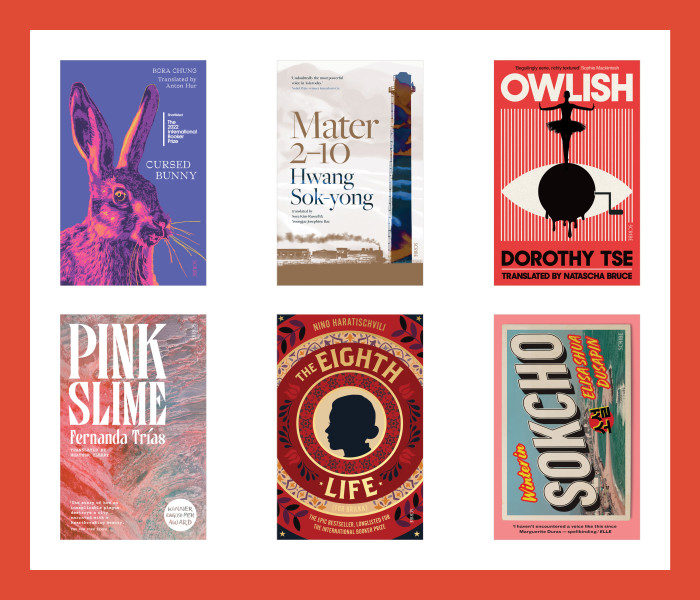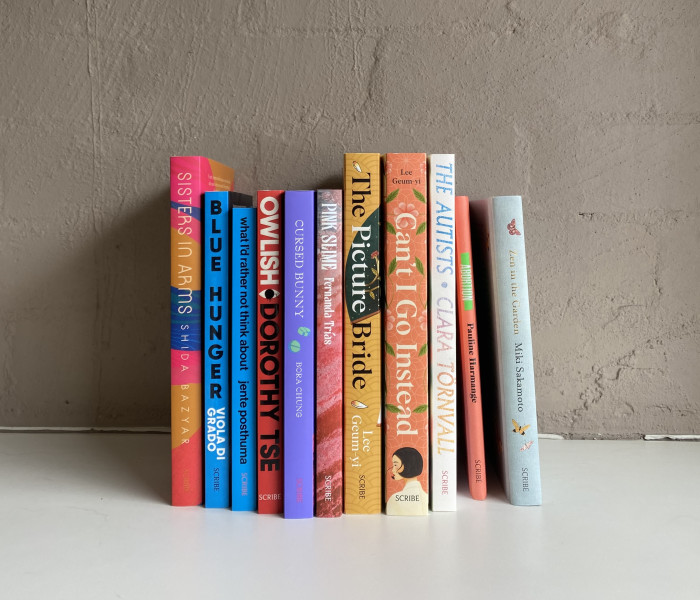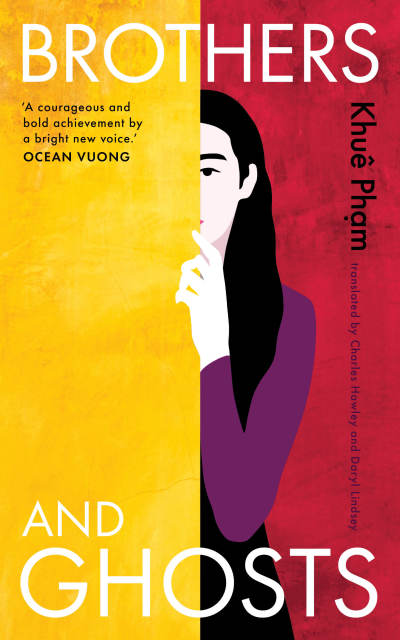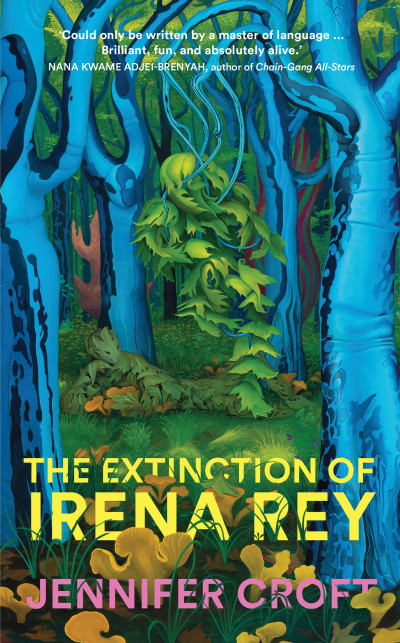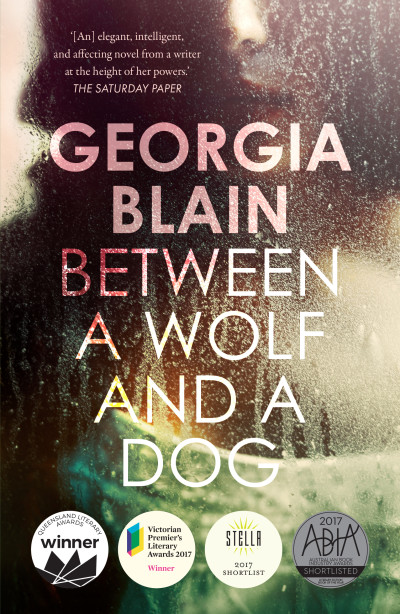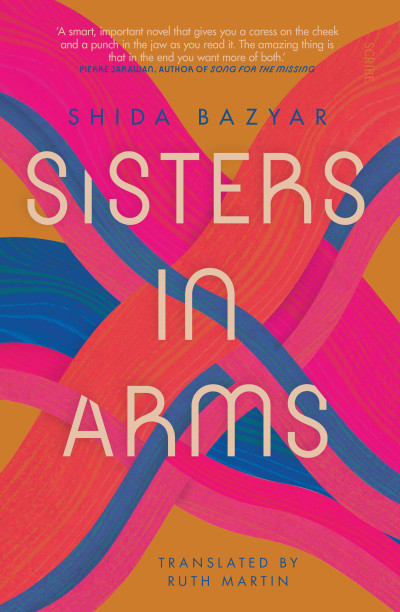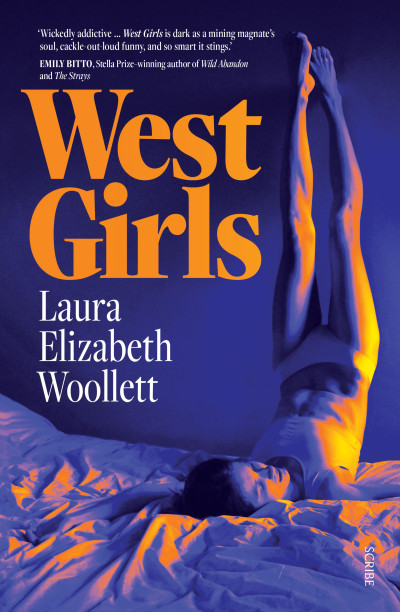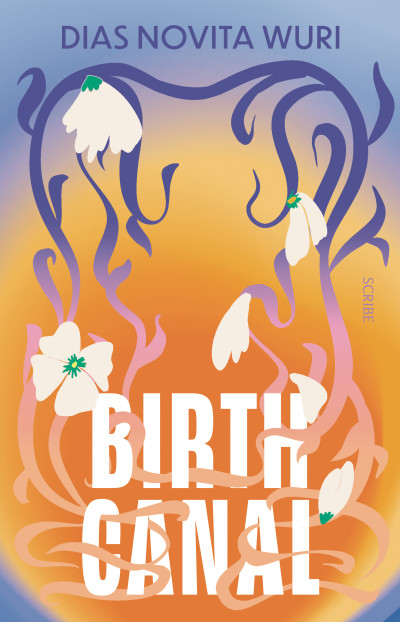‘There are books you read for knowledge, those you read for escape, those you read for enlightenment, those you read to be lost, those you read to be found, and then those you read again, and again. Owlish succeeds on all of these levels, with a reminder that perhaps the most powerful way to reject oppression is through imagination, and creation.’
Mandana Chaffa,, Chicago Review of Books
‘Tse joins the ranks of artists currently remaking the world, from Yoko Tawada to César Aira.’
Joyelle McSweeney, author of Toxicon and Arachne
‘Dorothy Tse is a magnificent historian of unreal places. Her sage and serious characters are cast adrift in realities that are neither sage nor serious at all — and possibly impossible. Her parallel worlds and paradoxes brilliantly illuminate our own reality, with all its fictions masquerading as facts (and vice versa). Boundlessly creative, richly philosophical — I loved this book.’
Joanna Kavenna, author of Zed
‘Beguilingly eerie, richly textured, the pages of Owlish are drenched in strange beauty and menace. Like all the best fairy tales, it reveals the dark truths that we would rather not look at directly, and does so with a surreal and singular clarity.’
Sophie Mackintosh, author of Cursed Bread
‘A magical and potent tale for these tyrannical times.’
NoViolet Bulawayo, author of Glory
‘Owlish is so delightfully creepy, wonderful, and strange.’
Camilla Grudova, author of Children of Paradise
‘A bold, brilliantly absorbing read. This clever, mercurial portrait of an alternate Hong Kong lingers long after the last page.’
Irenosen Okojie, author of Nudibranch
‘Owlish [is] a darkly sexual sociopolitical fable … Tse’s excellent novel becomes increasingly bizarre.’
Hal Jensen, TLS
‘Late capitalist malaise and political turmoil populate Nevers, the glittering, neoliberal city at the heart of Dorothy Tse’s debut novel, Owlish… Natascha Bruce was awarded a PEN/HEIM grant for her sparkling translation of this richly imagined, modern-day fairy tale.’
Center for the Art of Translation
‘It’s tempting to call Owlish a fantasy, or an anti-fairytale. The book is not shy of drawing in references, including to Mephistopheles, Kant, the Brothers Grimm, Lewis Carroll, Kafka, Orwell and Tchaikovsky’s Swan Lake. However, Tse’s acerbic, freewheeling spirit is generically flirtatious, rather than genre-bound. She steals from the western canon with chutzpah and panache to create a subversive tale about perilous desire, high-rise bureaucracy and sophisticated corruption in a defenceless city under siege … Owlish wittily captures a recent crisis moment in Hong Kong, exploring a discombobulating state caught between civilisation and its discontents.’
Kit Fan, The Guardian
‘[A] surreal fantasy and the reading experience is demanding … you might ask yourself if it’s worth the effort. On reaching the end you will surely conclude that it is … a very brave book.’
David Mills, The Times
‘Owlish is the story of a city as much as it is the story of Q. Between his correspondence with a strange figure known only as Owlish and a ballerina figurine who has come to life, the professor is immersed and distracted enough not to notice the city and his university emptying out around him as the political situation deteriorates and falls into chaos. Tse’s style in Owlish, with its magical elements, suggests a more overtly political Italo Calvino, or Salman Rushdie with a lighter touch … the story is engrossing and the prose, translated by the always satisfying Natascha Bruce, a delight.’
Jessa Crispin, The Telegraph
‘In Owlish, nimbly translated by Natascha Bruce, there are several nods to Franz Kafka and Tse offers a powerful vision of government repression … Tse combines the banal and the fantastic to terrific effect. Full of striking imagery, Owlish is a vertiginous tale of a people sleepwalking into catastrophe.’
Lucy Popescu, Financial Times
‘A wonderfully imaginative fable that resonates with political critique and protest.’
Kirkus Reviews
‘[Owlish] feels alive, like it is still being written — which seems less strange when you consider that Hong Kong, in its own way, is too an unfinished manuscript, a fury of voices.’
Xiao Yue Shan, Asymptote Journal
‘Tse’s vision is entirely original and wonderfully bizarre. The language of Natascha Bruce’s elegant translation surprises and delights at every turn.’
Andrew Ervin, The Brooklyn Rail
‘In Owlish Tse makes a compelling spectacle; demonstrating the price of apathy during oppressive administrations, suggesting how we might resist the unspeakable mechanisms of regime. She crafts a wondrous hinterland in her writing, imagining the waiting worlds we might dream ourselves into — if we try.’
Annie Hayter, The Big Issue
‘Extraordinarily impressive. The word that comes to mind for both Dorothy Tse and Natascha Bruce is ‘virtuosity.’ … With its sureness of touch, its steely wit and its humour, Owlish is a most welcome addition to the bookshelves of translated novels. I hope it gets the recognition it certainly deserves.’
Nicky Harman, Asian Books Blog
‘[A] brilliantly unsettling fairytale.’
Katie Goh, i-D
‘Owlish bears witness to a dream state, to a place where language doesn’t always work quite how it should, where the boundaries of deviance, obedience, and desire blur. Caught within these shades of reality, the automata whirs. A cranking becomes faintly audible. Tse weaves a kind of visceral, bodily syntax full of openings and shrouded things; tantalising always, whether for us or for our hero.’
Marguerite Carson, The Skinny
‘I was blown away by the craft, inventiveness and humour of Owlish… A frustrated literature professor retreats into a secret inner world in this playful novel set in an alternate Hong Kong: a disquieting tale of revolt and rebellion, denial and self-delusion, and the tricks we perform to keep going in life … Owlish is both a sly subversion of fairytales and a Kafkaesque portrait of life under an oppressive regime.’
Madeleine Feeny, The Bookseller
‘The many layers of Tse’s narrative demand rereading and offer up alternative and contrasting readings, making it a novel of dizzying complexity despite its relatively slim length. Owlish’s bizarre and unsettling imaginings are a dark funhouse mirror reflection of our current world whose relevance slowly reveals itself. I shall be surprised if I encounter a more urgent or powerful exploration of our dystopian reality over the course of this year.’
Jonathan Thornto, Fantasy Hive
‘Throughout Owlish, Dorothy Tse’s debut novel, we dance between reality and fantasy, witnessing miracles and tragedies that grow and disappear, leaving only a trace of a dream upon waking … The novel is a mysterious deliberation on political upheaval through questions of agency, identity and the dangers of isolation and separation from our communities.’
Cici Peng, Worms Magazine
‘Tse’s debut novel is a great success, an enjoyable romp through a shadowy realm and an excellent off-kilter adventure with shades of Yoko Ogawa and Can Xue … Tse’s modern Pygmalion story spends much of its time bending the rules of reality, and the novel is punctuated by a number of dreams which then bleed out into everyday life … there’s far more to Owlish than just a Murakamiesque adventure, and while the names are changed, it’s clear that Tse is writing about real-life events … Owlish is a political novel in many ways, then, but also a wonderfully imaginative work, creating a parallel city where anything is possible … clever and entertaining, a well-crafted work of magical-realism that will appeal to most readers.’
Tony's Reading List
‘[A] fantastic magic realist novel that is best described by a single word: dreamlike … Tse’s writing is lyrical, political and playfully satirical, creating a portrait of a city that is too busy dreaming to see how it is being torn apart at the seams … Tse’s wry storytelling voice balances the comically absurd with the darkly unsettling, creating the sense that this is some ancient fable spliced with modern-day concerns.’
Joe Murray, Readings
‘Tse, best known for short stories that blend the quotidian and the bizarre, is a master at evoking disorientation. In Owlish, she borrows from the Western canon to create what can be described as a fairy tale gone rogue. The surrealist narrative is conjured to great effect, with Tse explicitly appropriating the storylines and techniques of Lewis Carroll, the Brothers Grimm and George Orwell, amongst others. These are authors who have a particular flair for using the destabilisation of narrative reality as a device to comment on the fantastical horrors that pervade life under repressive regimes, and Tse applies this cheeky thievery with panache. Despite a dystopian bent, a buoyant mood simmers beneath Owlish. Tse seems to suggest that if we do bother imagining new worlds, we might be able to break the spell of propaganda.’
Cher Tan, ABC News Arts
‘Tse creates a world that appears smooth and functional but, like a room of funhouse mirrors, the reality is something much more distorted and unnerving … In renaming the key places of Owlish… Tse transforms the political relations between these places into something of a fable, but it’s only the names that change – everything else holds true to reality … With surrealist humour, Owlish is an interesting genre-bending read that asks us to question what we think we know about our reality, what it means to be ‘awake’, and encourages us to seek information far beyond its pages.’
Elaine Chennatt, Aniko Press
Praise for Snow and Shadow :
‘Snow and Shadow challenges the boundaries and limitations of our narrow, conventional realities and forces us to re-examine our perspective of the world. It is a book that requires bravery and an open mind. But, armed with these tools, many will find that this enchanting collection of transformative tales will, like a shadow, follow them long after the final page.’
Amy Russell, South China Morning Post
Praise for Snow and Shadow :
‘Plots for the stories in Snow and Shadow are often downright peculiar, yet it’s almost impossible not to yield to Tse’s confident and exact prose … Like the magical realists, Tse's writing interweaves the magical and the mundane. Universal laws, familiar logic, or a linear construct of time will not help readers interpret the events in Snow and Shadow… Reading Snow and Shadow is akin to being lost in a snowstorm: dizzying, terrifying, but nevertheless thrilling.’
Words Without Borders
Praise for Snow and Shadow :
‘By turns playful and melancholy, Dorothy Tse’s tales never fail to mesmerise: they are wonderfully assured, and genuinely strange.’
Sarah Shun-lien Bynum, author of Madeleine Is Sleeping


